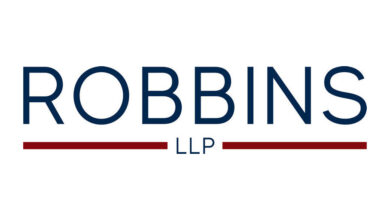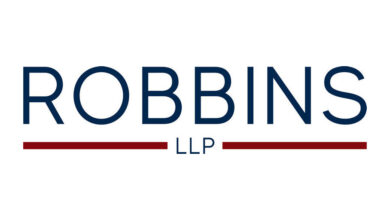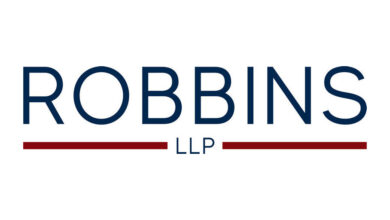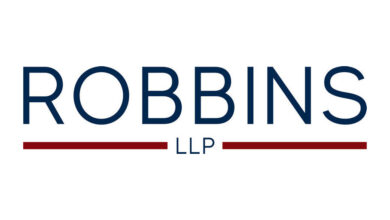Degrader-Antibody Conjugates 2024: Industry Analysis of Stakeholders, Technologies, Pipeline and Partnering – ResearchAndMarkets.com

DUBLIN–(BUSINESS WIRE)–The “Degrader-Antibody Conjugates 2024: A Landscape Analysis of Stakeholders, Technologies, Pipeline and Partnering from an Industry Perspective” report has been added to ResearchAndMarkets.com’s offering.
This report provides you with a landscape description and analysis of degrader-antibody conjugate (DAC) stakeholders, platform technologies, development and discovery pipelines and partnering deals from an industry perspective as of September 2024.
The emerging novel drug modality of degrader-antibody conjugates represents the convergence of the existing technologies of antibody-drug conjugation and targeted protein degradation with the goal of combining the strengths and avoiding the limitations of both technologies. DACs combine the specificity of antibodies with the efficiency of degraders of difficult to drug protein targets. Degrader-antibody conjugates provide plenty of opportunities for ADC companies to use a novel payload to improve efficacy and the therapeutic window and for targeted protein degradation (TPD) companies to improve cell-specificity, half-life and drug-like properties.
The two main uses for Degrader-Antibody Conjugate therapy are:
- Intracellular Targeted Protein Degradation
- Extracellular Targeted Protein Degradation
The report brings you up-to-date with information about and analysis of:
- Stakeholders in the field, by company profiles of DAC activities at pharmaceutical and TPD technology companies;
- DAC technologies using PROTAC and molecular glue for proteasomal degradation for intracellular TPD;
- Proteins-of-interest for intracellular degradation;
- E3 ligases used for intracellular degradation;
- DAC technologies using broadly acting degraders for extracellular TPD;
- DAC technologies with lysosomal pathway degraders;
- Clinical and non-clinical development pipeline of DACs;
- Profiles of clinical stage DACs;
- DAC discovery pipeline;
- Preclinical proof-of-concept of DAC conjugate technologies and constructs;
- Partnering activities (acquisition, licensing, collaborations)
The original concept of degrader-antibody conjugates defines DACs as tumor-targeted antibodies chemically conjugated to proteolysis-targeting chimera (PROTACs). PROTACs are large heterobifunctional small molecules with one part binding to the intracellular protein of interest (PoI), e.g. Bruton’s Tyrosine Kinase (BTK), via a linker to a second part which binds to an E3 ligase that ubiquitylates the PoI, resulting in proteasomal degradation in the cytosol.
The majority of DAC discovery programs rely on this concept, but DAC using a molecular glue instead of a PROTAC are also being pursued and even are the first in clinical evaluation. Molecular glue-type small molecules act as an glue that enhances the interaction between an E3 ligase and a PoI, leading to its ubiquitylation and proteasomal degradation. PROTACs are easier to design than glues given their independent binding sites to the E3 ligase and the PoI. However, they are generally large molecules that can be challenging to develop, whereas glues are typically smaller and more “drug-like”.
The scope of degrader-antibody conjugates is currently being expanded into the extracellular space for degradation of membrane bound and soluble proteins. Extracellular targeted protein degradation involves bispecific biologics or small molecules that recruit the PoI, either membrane-bound or secreted (soluble), to a degradation machinery. Degradation may occur through a transmembrane E3 ligase, or a cytokine receptor or via a membrane bound recycling receptor for transport of the PoI to the lysosome, which is the typical pathway for the degradation of extracellular proteins.
Key Topics Covered:
1 Executive Summary
2 Introduction
3 Analysis of Stakeholders in Degrader-Antibody Conjugate R&D
3.1 Pharmaceutical Companies
3.2 Technology Companies
4 Analysis of Degrader-Antibody Conjugate Technologies
4.1 Overview of Degrader-Antibody Conjugate Technologies
4.2 Degrader-Antibody Conjugates with Molecular Glue-type Degraders
4.3 Degrader-Antibody Conjugates with PROTAC-type Degraders
4.4 Degrader-Antibody Conjugates with Broadly Acting Degraders
4.5 Degrader-Antibody Conjugates with Lysosomal Pathway Degraders
5 Analysis of Degrader-Antibody Conjugate Research & Development
5.1 Clinical & Nonclinical Development Pipeline of Degrader-Antibody Conjugates
5.1.1 Profile of ORM-6151
5.1.2 Profile of ORM-5029
5.2 Pipeline of Discovery Stage Degrader-Antibody Conjugate Programs
5.3 Preclinical Proof-of-Concept of Degrader-Antibody Conjugate Technologies and Constructs
6 Analysis of Partnering in the Field of Degrader-Antibody Conjugate Partnering
6.1 Acquisition
6.2 Licensing
6.3 Discovery Collaborations
7 Profiles of Companies with Degrader-Antibody Conjugate R&D
7.1 Pharmaceutical Companies
- Bristol Myers Squibb
- CSPC Pharmaceutical Group
- Debiopharm
- Eisai
- GlaxoSmithKline
- Merck KGaA
- Merck & Co. (MSD)
- Novartis
- Pfizer
- Pierre Fabre
- Roche
- Vertex Pharmaceuticals
7.2 Technology Companies
- C4 Therapeutics
- Crossfire Oncology
- Cullgen
- EpiBiologics
- Firefly Bio
- InduPro
- Lycia Therapeutics
- NanoMedSyn
- NIBEC
- Nurix Therapeutics
- Orum Therapeutics
- Prelude Therapeutics
- Ubix Therapeutics
- VectorY Therapeutics
8 Profiles of Degrader-Antibody Conjugate Technologies
- AMFA
- CELMoD ADC
- Degraducer
- DELigase
- EpiTAC
- EPriL
- LYTAC & GELYTAC
- PROTAB
- PROxAb
- REULR
- TORPEDO
- TPD2
- uSMITE
- VecTron
For more information about this report visit https://www.researchandmarkets.com/r/aj64k4
About ResearchAndMarkets.com
ResearchAndMarkets.com is the world’s leading source for international market research reports and market data. We provide you with the latest data on international and regional markets, key industries, the top companies, new products and the latest trends.
Contacts
ResearchAndMarkets.com
Laura Wood, Senior Press Manager
[email protected]
For E.S.T Office Hours Call 1-917-300-0470
For U.S./ CAN Toll Free Call 1-800-526-8630
For GMT Office Hours Call +353-1-416-8900





